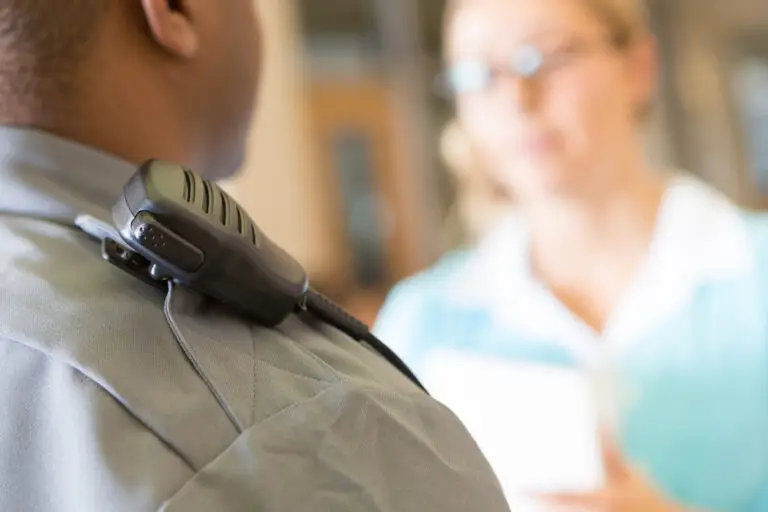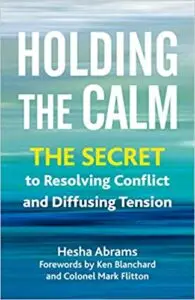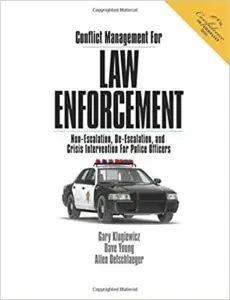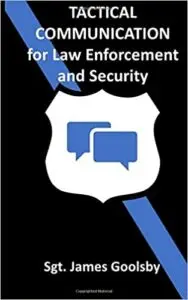
How you develop and employ your conflict resolution skills depends heavily on your own personality.
~ Barry M. Baker Tweet

Detective Lieutenant Barry M. Baker (ret.) is a 32 year veteran of the Baltimore Police Department.
Conflict resolution, when associated with police officers, usually refers to methods of communication and solutions absent the use of force. As a police officer, you’ll be spending a lot of your time trying to deal reasonably with unreasonable people. It’s not easy for experienced police officers, so think about how hard it will be for you in the beginning. You’ll have little experience in dealing with simple conflicts let alone potentially dangerous ones.
During your academy and field training, you’ll be exposed to conflict scenarios and real conflicts respectively. The first will be classroom controlled, and the latter controlled, as much as possible, by your Field Training Officer. The day will come when you’ll be all alone and presented with your own conflict for resolution. You’ll learn quickly that human conflicts will have similarities among them along with their own unique aspects.
Domestic Disturbance and Conflict Resolution
Every conflict you encounter will be a learning experience, and each one will be a stressful experience. What you learn from each will go a long way toward your ability to develop effective conflict resolution skills. You simply can’t imagine how many different types of conflicts you’ll encounter, but let’s take a look at one you’ll encounter frequently – the domestic disturbance.
The psychologist or psychiatrist counsels troubled domestic partners or family members in a mutually agreed session in a neutral setting. You’ll begin your counseling sessions at the high point of arguments in the environments where the arguments begin.
How you develop and employ your conflict resolution skills depends heavily on your own personality. I worked with an officer who I wouldn’t describe as having a thoughtful attitude toward others in conflict, but his method for conflict resolution was remarkably successful. He was well educated, and he presented a commanding physical presence.
Self-Confidence
His most effective attribute was his voice, because it was deep, loud and commanding. No one could shout over him, and he wasn’t even shouting. He rarely had to use any type of physical force, because his verbal and physical dominance was so effective. I finally came to the conclusion that the secret to his success was the utter self-confidence he exuded when he exercised that dominance.
As successful as this officer was at conflict resolution, his method resulted in a lot of stress for his sergeant after the fact. I never worked with an officer who received so many supervisor level complaints. The complaints were numerous and aggravating for the sergeant, but they were never serious. “Mean” was almost always the operative word describing the officer’s attitude. “Mean” is an interesting description. He never used profanity, but he had an uncanny ability to make arguing adults feel like misbehaving children.
You must remember that what works for one will not work for all. For instance, you’ll see police officers who’ll attempt this dominance model with little, if any, success. Indeed, you’ll work with some who’ll create more turmoil than they prevent.
Listening
You do have one distinct advantage over the doctors for conflict resolution. You have handcuffs, and you have the power to use them to end conflicts. As a police officer, you must always dominate in every conflict. How you achieve that dominance will depend largely on what works best for you. Whenever possible, you should employ the same primary tool used by the professional mental health counselor – listening.
Quite often, your mere presence, and your willingness to listen, will provide the controlling factors in a previously uncontrolled environment. Your thoughtful attention and directions can allow the argument to de-escalate to a manageable level. You will experience successes and failures, because that’s just the nature of human conflicts. Some of the failures will be inconsequential while others will require a physical resolution.
Related Content for Conflict Resolution
Advertisements





